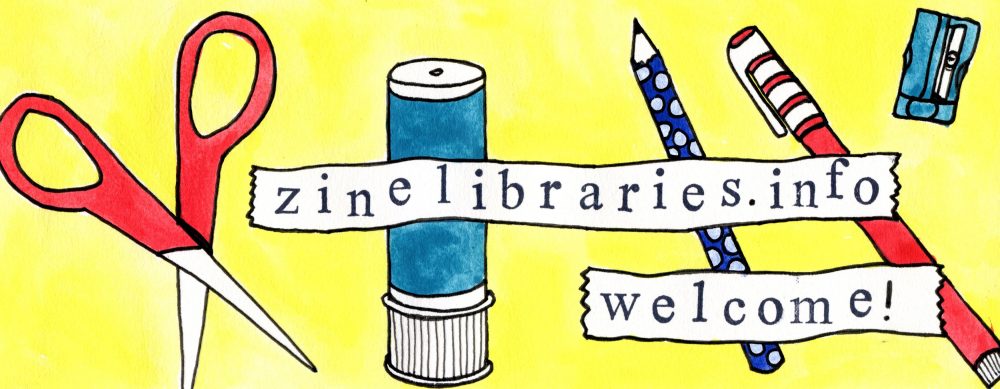Friday July 19
Breakout session 3, 2:30- 3:45pm
Session name: Archives, primary source documents with zines, zines as primary source
Facilitator: Deana
Note taker: Juli
Public lib collection, but may be moving more archival
Local history class/liaison with Hist Dept
Funding with Teaching with Primary Sources, Lib of Congress
How are people using zines as a primary sources?
- History of the Book course- the professor is connected to the library, and is enthusiastic about Special Collections. Zines are a week in this course (along with the comics collection)
- This brings in the history of zines, perspectives that zines bring to the table
- Talks about ethics of having zines in the library
- Students relate to/ identify with zines in ways they might not with other history of books
- In the public library zines are viewed as ephemeral, and it is hard to connect the dots that zines are worthy of being kept and have enduring value
- Had to bargain that in order to catalog the collection, they had to weed the collection. But sent it to the local university, to be archived
- “Sneaking†zines into other instruction methods– make zines on the same level as other materials like newspapers, letters, etc
- Pairing decolonization zines with letters from early missionary efforts (colonization). How do these items speak to each other, and how are the effects felt across space and time?
- How to bring zines into the archives when the students can’t get to the archiving. Digitized zines! QZAP is a great resourcesÂ
- Zines as a way to remix archives! (in the same vein as the subversive nature of zines)
- AMAZING zine “Whatever Happened to Emma Crawford?†using the primary sources, telling the story, a way to pitch to professors
- Could be applicable as a public history session (or a way to engage with the public and make them interested in history)
- This zines uses primary sources, but zine-i-fies them (see pictures)
- Using zines to allow buy-in in the archive, to empower folks to visit the archives, or feel ownership of the material
- To get folks to relate to a zine, they need to feel connected
- How to use perzines as a valuable story
- Programming
- How to use perzines as a valuable story
- Feelings around using zine makers who are still alive, being used in the classroom. Would someone be weirded out by this?
- RADICAL EMPATHY– feminist ethics of care. The archivist has an affective responsibility toward their users, donors. Who should an archivist be responsible and sensitive to? (Zine makers)
- How do we consider the creator? Taking items out of the collections
- Shifting the idea about keeping everything. We can’t and we really shouldn’t try. If someone wants to be forgotten, that is their right. It’s tricky to navigate. Zine creators probably don’t have a claim to having the item removed, but archivists have a higher ethical obligation.Â
- How to acquire older zines, locally?Â
- Build a relationship with zine people and ask, buy or donate.Â
- How to talk about institutional trust with punks and DIY community
- Be sure to reach outside your circle.Â
